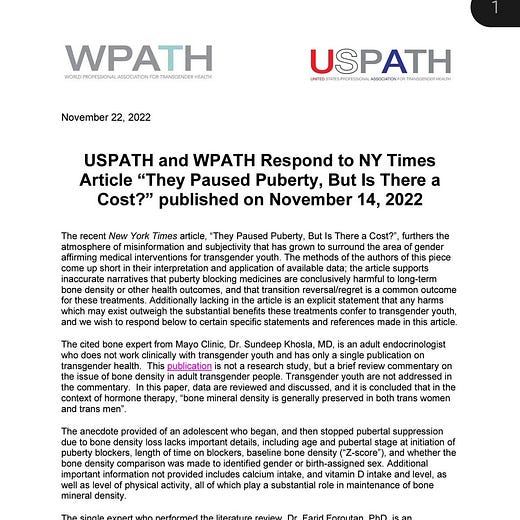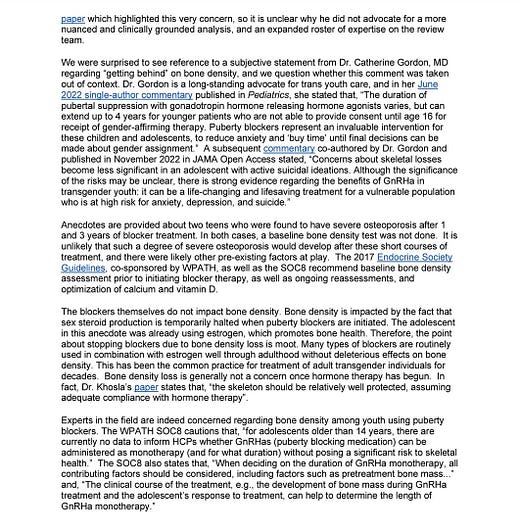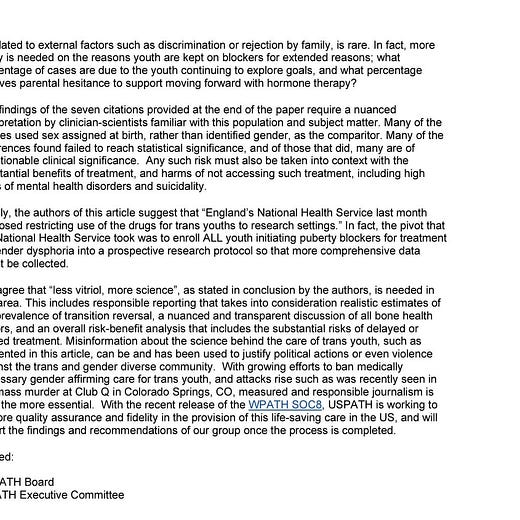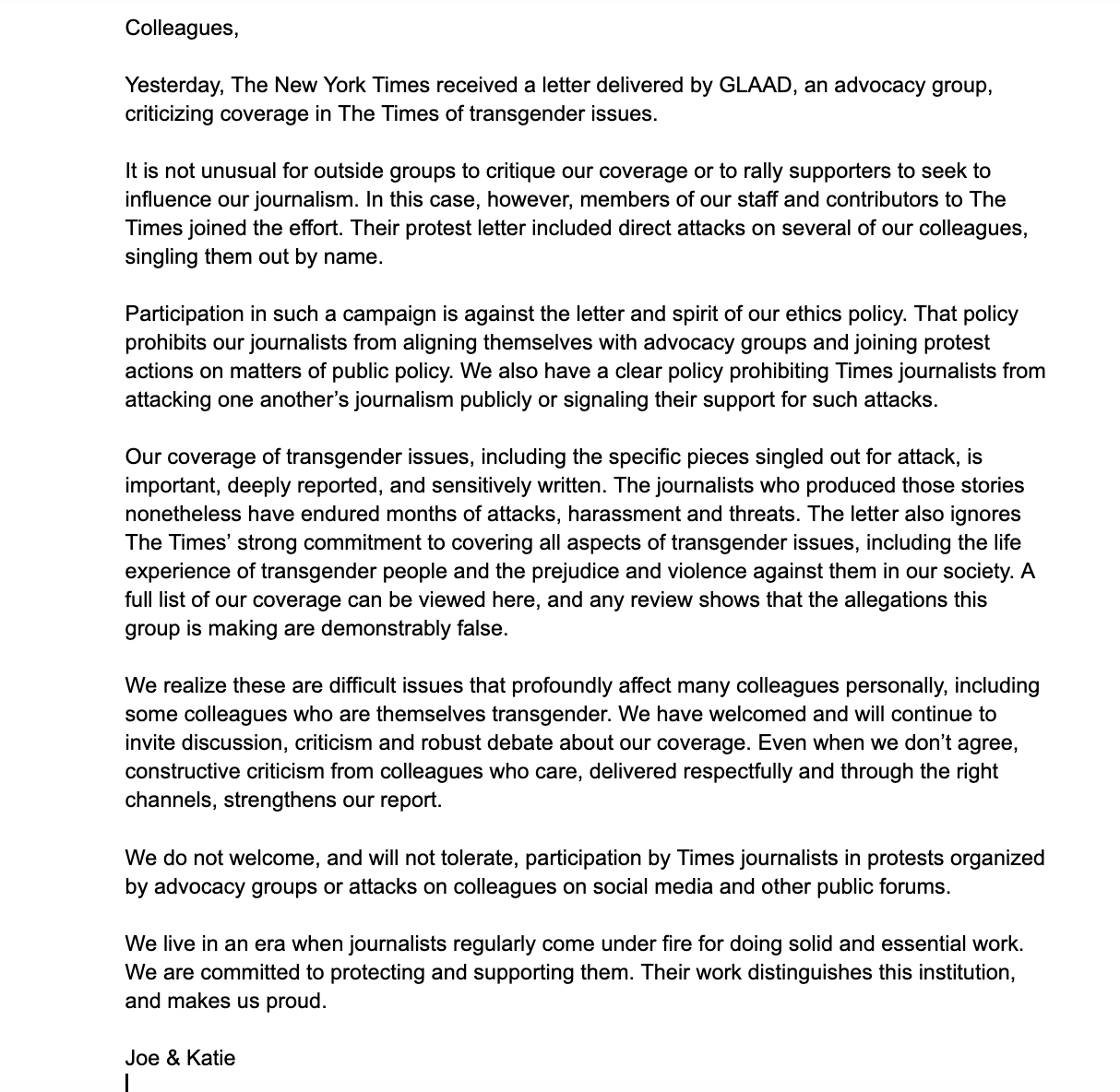I Signed A Critical NYT Trans Letter. Their Response Is Insulting.
Two letters were released on Wednesday, February 15th, accusing the New York Times of poor and damaging coverage of transgender issues. The paper has since threatened staff, doubled down.
On Wednesday, February 15, two letters were released to The New York Times. The first was from hundreds of current and former contributors to the publication, and the second was from more than 100 LGBTQ+ organizations and leaders. Although delivered by different groups, the message in both was clear: The New York Times has been shoddy at best and malicious at worst in its coverage of transgender issues. They alleged that The New York Times has selectively presented anti-trans leaders as impartial, that the publication has made crucial errors in its reporting on transgender people and gender-affirming care, and that its poor articles have been cited in legislative hearings targeting transgender individuals and their care. I was a signatory to one of these letters, and the response from The New York Times has been outright insulting.
The allegations against The New York Times' coverage of transgender issues were numerous. Current and former contributors pointed out that the publication has used derogatory terms for transgender people. For instance, in Emily Bazelon's story, "The Battle Over Gender Therapy," one of the first trans youth who received puberty blockers was referred to as "patient zero” - extremely dehumanizing language that compares trans people to an infection. Multiple experts featured in the article have since noted that their work was misrepresented. I recently pointed out that organizations like Genspect are presented with no context as "an international group" without noting that they are explicitly campaigning for an end to gender-affirming care up to the age of 25 and that they are not a medical or professional organization. Upon investigating the journalists covering these stories, it was found that they tend to follow almost exclusively anti-trans sources and groups that call for an outright elimination of transgender people from society. It is clear that the reporters' media diet comes from people who oppose transgender individuals.
If the bias is bad, the misrepresentation of the science is worse. WPATH, the organization responsible for setting the standards of care for transgender people worldwide, released a multi-page report slamming the many facts The New York Times got wrong:
It is for these reasons that I signed the second letter, the one from LGBTQ+ organizations and activist leaders, when approached by GLAAD. The New York Times' repeated appearances in legislative hearings and court cases has been troubling. In a recent hearing in Nebraska, I witnessed a man citing religious disapproval of transgender people use The New York Times to support his arguments. The publication's coverage has even been cited in amicus briefs, such as the Arkansas attorney general's use of The New York Times' portrayal of experts as "divided" over care, which is critically wrong. Notably, all 29 major relevant medical organizations in the United States have come out in support of that care.
The response from The New York Times the next day was atrocious. Not only did they dismiss all of the concerns, they doubled down on their anti-transgender coverage. Within 24 hours of receiving the letter, they published a large opinion piece in defense of JK Rowling, who has been criticized for her support of anti-trans laws banning trans people from bathrooms and identification changes:

After the publication of the opinion piece, The New York Times began targeting its transgender employees and allies who had signed the contributor letter. In their threats, they erroneously conflated the activist and LGBTQ+ leadership letter with the letter from former contributors, even though the two letters were distinct. You can see The New York Times' response here:
The publication of the opinion piece and subsequent response by The New York Times is insulting on several levels. Even if the letters criticizing the publication had not been released, the week began with the murder of a 16-year-old transgender girl, Brianna Ghey, in England, who had been the victim of transphobic bullying for years. The article’s defense JK Rowling, who has remained silent about the girl's death and has advocated policies that would result in Brianna's death certificate listing her as male, would be ill-timed and misguided. Its publication the day after The New York Times was criticized for its history of transphobic coverage suggests purposeful malevolence.
When combined with a threatening response to employees and contributors, it is clear that the publication is outright hostile towards the transgender community. The letter claims that The New York Times is “proud” of its inaccurate coverage of transgender people and the medical science around them. The publication has made no commitment to hire more transgender people, no commitment to improve the fact checking of its transgender coverage, and no commitment to accurately portray the groups that are targeting transgender healthcare and rights. Worse, the threatening response conflates the contributor letter with the letter from activists and LGBTQ+ organizations - this is intentional, as it allows them to ignore the critiques that their coverage does not align with their own editorial values and standards. The New York Times therefore contains inaccuracies in its very response to accusations of inaccurate reporting of transgender people.
On an update to the contributor letter, these inaccuracies were noted:
If virtually every organization representing a highly targeted minority group calls your coverage poor, the right response is not to claim your own understanding of the issues is better than that group’s perspective. In this case, The New York Times has not only placed cisgender-centered concerns over the lives of trans people, it has refused to accurately report on the issues as evidenced by the journalists, medical organizations, and scientists’ critiques. The way The New York Times is treating criticism by going on the defensive is abhorrent, and should be used as an example for years to come on how not to address pleas from a minority community over damaging misinformation.
The only way to move forward with respect to The New York Times is to abandon their coverage altogether. GLAAD has indicated that it will strongly advise “trans youth and their families skip interviews with the Times, in order to keep them out of harm's way.” People discussed different ways in which to cancel your subscription on twitter - subscriptions to The New York Times can run as high as $199/month. This money could be much better spent on transgender journalists, publications that cover transgender issues better, or even to the organizations fighting for transgender rights. Until The New York Times improves its coverage of transgender people, they do not deserve a dime from people who care about this issue dearly.
If you would like to cancel your own coverage, these instructions show how to do so:
Learn about the different ways you can cancel your New York Times subscription.
There are several ways to unsubscribe from The Times. Once your subscription has been cancelled you will have limited access to The New York Times’s content.
Give us a Call
Call us at 866-273-3612 if you are in the U.S. Our hours are 7 a.m. to 10 p.m. E.T. Monday to Friday, and 7 a.m. to 3 p.m. E.T. on weekends and holidays.
If you are outside the U.S, please see our international contact information.
Chat with a Care Advocate
Select the "Chat" button to the right or bottom of this page to chat with a Care Advocate and cancel your subscription.
Chat is accessible 24 hours a day 7 days a week.
For more information about our cancellation policy, see our Terms of Sale.
Go to your account
All digital subscriptions billed through The New York Times can be cancelled using your account. This option is also available for certain Home Delivery Subscriptions.
Under your account, select "Subscription Overview"and under "Manage Subscription" select "Cancel your subscription" then follow the instructions to cancel.
Note: If you purchased your subscription through a third-party (such as Google Play or iTunes), you will need to contact the third-party directly to cancel or make changes to your subscription.









The NYT has fallen down on climate change denial, antisemitism and transphobia. I've been considering cancelling for a while anyway. I just went ahead and did it... and used a small portion of that to subscribe to you. Thanks for your good work.
I called and cancelled my subscription this morning--I have a non-binary child. I told the very nice lady I spoke to why I was cancelling, and asked her courteously to pass on to management that they were putting kids like mine in danger with their poor coverage and concurrent dismissal of criticism. She said she definitely would pass that along, and then offered me the editorial department's phone number so that I could also call them and let them know why I'd cancelled. I asked if this was something she thought I should do, and she said "well they've given us that number and suggested we pass it on, so yes!"
I did call. I got a VM, and did leave a message. If anyone else wants to call the number is 212-556-3652. Screw them. Seriously.